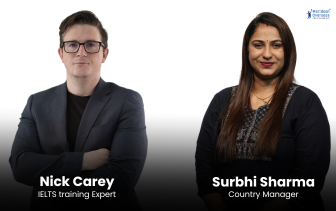
Announcements

Announcements



DELF stand for Diplôme d’études en langue française, is the officially recognised certification which is issued by the French Ministry of Education and is recognised on an international level. The certificate is accessible for all age groups and has a lifetime validity. In addition to serving as a doorway to French colleges and exciting careers in Canada, France, and many other countries, the test is used to evaluate the proficiency of French language learners across all age groups.
The DELF test is highly popular these days and has several advantages. Among these advantages are:
Employment Opportunities
If you're looking for work, DELF is the solution. This test is ideal for increasing your chances of finding work because it allows you to continue your education, travel, or relocate overseas.
Common and Beneficial
The DELF is your doorway to teaching French in France or anywhere else if you choose to pursue a career in the language. The test gives you access to French universities as well as the French-speaking professional business community.
Powerful Diploma
The DELF is regarded as the most potent since it requires you to demonstrate your proficiency in French through evaluation.
Competitive
This test has four sections and is quite competitive. Every year, thousands of students of all ages take the DELF worldwide. To pass this exam, candidates must demonstrate their proficiency in the French language in the four primary areas: writing, speaking, listening, and reading.
The full form of DELF is Diplôme d'études en language française. It is an exam for non-native French speakers. This exam aids in determining how proficient you are in the French language. This test covers all skill levels, from beginning to advanced, with levels ranging from A1 to B2. Additionally, the DELF is among the greatest and most valuable certifications in French, particularly if you wish to enrol in a French institution or seek employment in France or other French-speaking nations like Belgium, Switzerland, or Canada.
There are six levels of difficulty and certification available for the DELF exam, which are as follows-
DELF A1: Breakthrough or beginner
DELF A2: Waystage or elementary
DELF B1: Threshold or intermediate
DELF B2: Vantage or upper intermediate
DALF C1: Effective Operational Proficiency or Advanced
DALF C2: Mastery or proficiency
There are many DELF/DALF test levels based on competency levels and age groupings. The exam's structure:
|
Exam Type |
Oral Comprehension |
Written Comprehension |
Written Production |
Oral Production |
|
DELF A1 |
20 minutes |
30 minutes |
45 minutes |
6 to 8 minutes are given with 10 minutes of preparation |
|
DELF A2 |
30 minutes |
25 minutes |
45 minutes |
6 to 8 minutes are given with 10 minutes of preparation |
|
DELF B1 |
25 minutes |
45 minutes |
45 minutes |
15 minutes with 10 minutes of preparation |
|
DELF B2 |
30-minute |
60-minute |
60-minute |
20-minute PO with 30 minutes of preparation |
|
DALF C1 |
40 minutes |
50 minutes |
2.5 hours |
30 minutes with 60 minutes of preparation. |
|
DALF C2 |
3hours 30 minutes |
3hours 30 minutes |
30 minutes |
30 minutes with 60 minutes of preparation. |
DELF A1 Listening (Comprehension Orale)
It lasts for around twenty to twenty-five minutes. This portion of the comprehension questionnaire required you to respond to three or four extremely brief recordings of daily life that were played twice. Furthermore, the recording could only last for three minutes at most.
The DELF A1 Reading Comprehension Exam
It is worth 25 marks and lasts 30 minutes. The person taking the exam will find comprehension questions in this area, to which you must respond with four or five written papers on your daily experiences.
DELF A1 Writing (Production ecrite)
It is worth 25 points and takes 30 minutes. It is divided into two sections: the first requires you to fill out a record and a form, and the second involves composing short sentences (messages, postcards, tales, etc.) on common subjects.
DELF A1 Speaking (Production Oral)
It lasts five to seven minutes and is worth twenty-five points. It has three sections.
Guided conversation
Information exchange
Role-play

The DELF/DALF test consists of four sections: Written Comprehension, Oral Production, Written Comprehension, and Oral Comprehension. A section's passing score is five out of twenty-five points for each segment. The maximum score a student can get in this exam is 100 and a passing score 50.
The costs for international students studying at Alliance Française vary, ranging from INR 8850 to INR 11,800. The costs for every DELF level are displayed in the table below.
|
DELF Level |
Exam fee (Inc GST.)AFD Students |
Exam fee (Inc GST.)External Students |
|
A1 TP |
Rs. 5,310 |
Rs. 8,850 |
|
A2 TP |
Rs. 5,310 |
Rs. 8,850 |
|
B1 TP |
Rs. 5,900 |
Rs. 10,620 |
|
B2 TP |
Rs. 5,900 |
Rs. 10,620 |
|
C1 TP |
Rs. 8,260 |
Rs. 11,800 |
|
C2 TP |
Rs. 8,260 |
Rs. 11,800 |
|
A1 Junior |
Rs. 5,310 |
Rs. 8,850 |
|
A2 Junior |
Rs. 5,310 |
Rs. 8,850 |
You need to take the following actions in order to register for the DELF test-
Speak with a recognised testing facility.
With over 1000 testing locations spread throughout 164 countries, it's simple to locate an exam centre no matter where you are.
Complete the registration form by entering your information. Furthermore, this applies to all people equally.
After that, you must provide a photocopy of your passport or ID card and use authorised testing facilities to pay the registration fees.
In India, there are very few locations that administer the DELF test for junior French language competency. The examination locations in India are listed below, but some of them are subject to annual modifications; those centres are as follows-
|
Location |
States |
|
North India |
Chandigarh, Delhi, Jaipur |
|
East India |
Kolkata |
|
West India |
Ahmedabad, Vadodara, Indore, Bhopal, Mumbai, Pune, Panjim. |
|
South India |
Bangalore, Chennai, Coimbatore, Hyderabad, Pondicherry, Mysore, Mangalore, Trichy, and Trivandrum |


Contact MOEC Experts for Study Abroad Guidance!

Post Comment